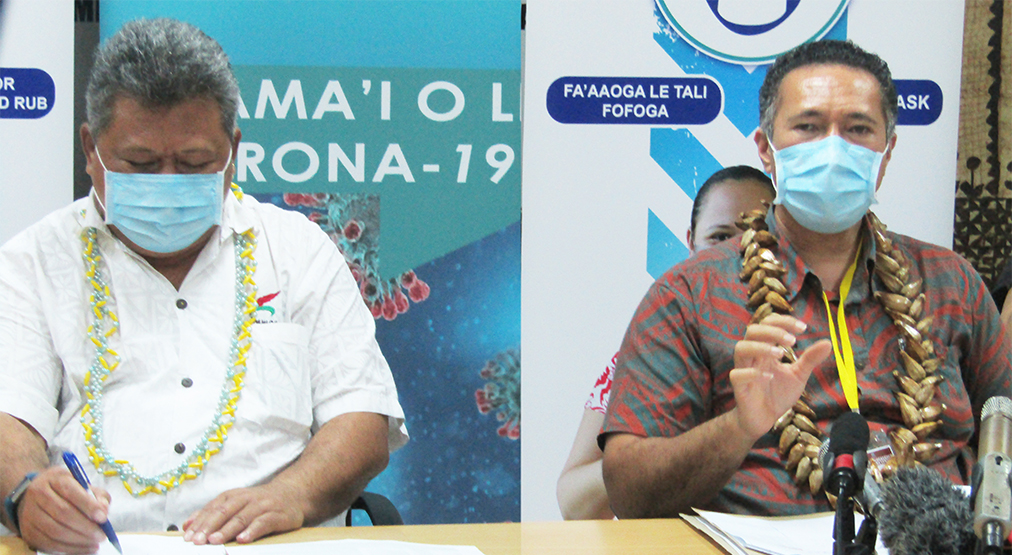By Martha Taumata Faavae
Return travel to Samoa for the elderly are not being encouraged as high risks group to the coronavirus pandemic.
The elderly who travel unaccompanied requires a lot of care as well, moreso when undergoing quarantine and are unable to cope on their own.
This is the experience the National Emergency Operations Centre, NEOC, staff are being forced to deal with despite calls for relatives to have family members attend to the elderly ones on the return.
“A family member has to travel home with the elderly to give them the 24 hour care they need during the two weeks they are isolated in quarantine,” NEOC Chairman Agafili Shem Leo urged in a press conference last week.
But the better option recommended for the elderly is for the family to keep them where they are until all the restrictions are lifted to make travel easier.
Agafili referred to the example of two mature travellers who arrived a week ago Friday from New Zealand, who have become an added responsibility for the health staff with their care while undergoing quarantine.
The travellers are Samoan citizens and were in New Zealand spending time with children and their families when the lockdown occurred.

“None of the children could travel with the elderly couple home to give them the care they needed because they were not citizens of Samoa.
The Director General of Health, Leausa Dr. Take Naseri, worry that the elderly are the ones in the age group that are highly vulnerable to catching the coronavirus.
“The risks are these senior travelers could easily pick up the virus while traveling through the airport on their own and continue on to Samoa with the disease,” Leausa cautioned.
“ Some of these folks have other health conditions also that are not easily treated here because the medication they need are not readily available.”
Leausa advised all families who are hoping to send their elderly folks to Samoa unaccompanied that the two weeks quarantine they have to go through is not easy.
He is concerned that families of these elderly travellers believe they are better off returning them to Samoa.
What they may not be aware of or overlooked is that the immune system for some have weakened from health treatments they have been undergoing during their stay.

“These folks are in a very sensitive situation during their travels with exposure to the many diseases along the way with their weak immune body system.”
Strict health security requirements for traveling have forced many of the travelling public to be taken off the flight at the last minute.
There were 18 passengers booked in the last repatriation flight who were not allowed to board because they failed to meet the health requirements demanded by Samoa on arrival.
